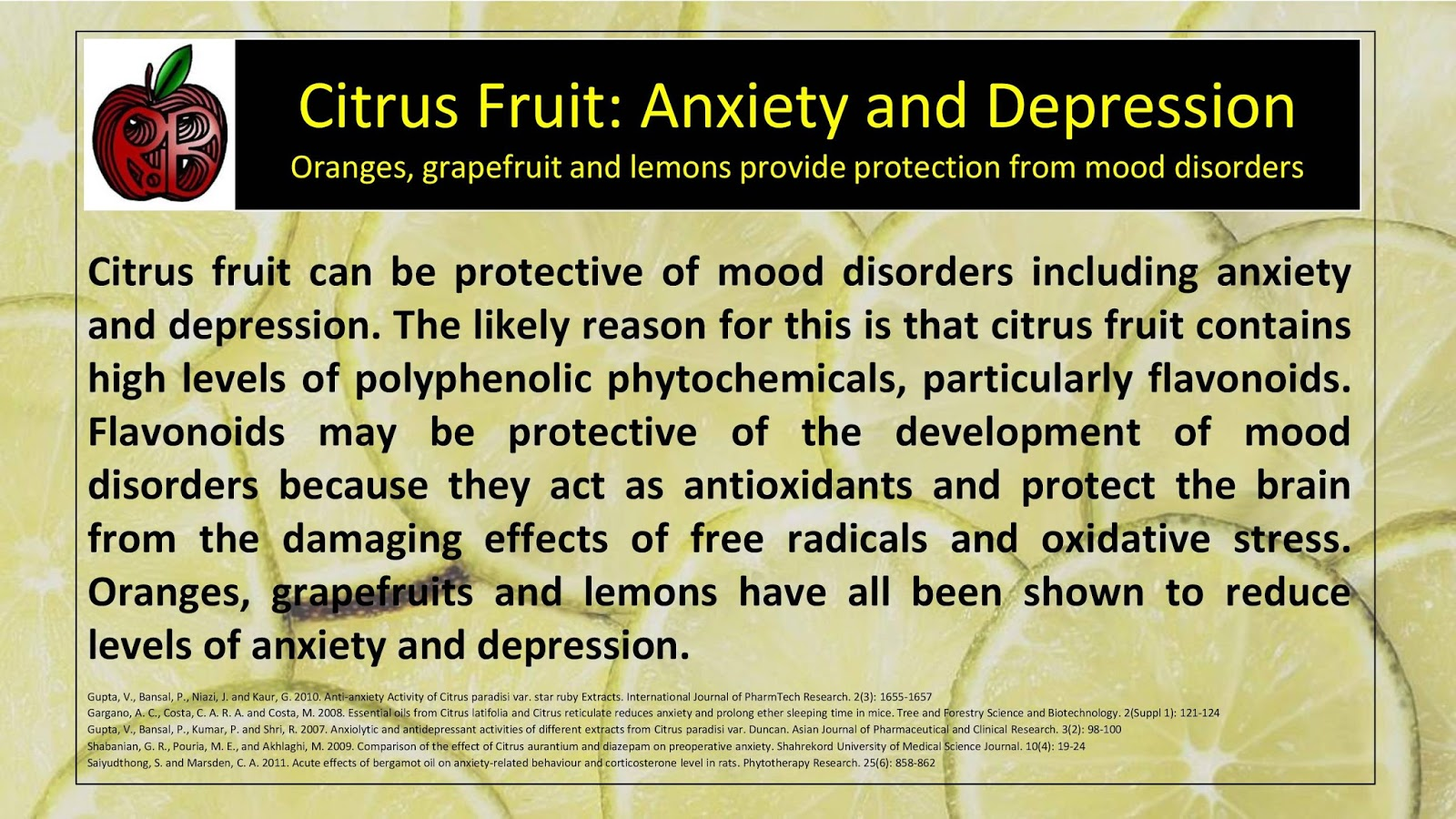Citrus depression prevention is an emerging area of research focusing on the connection between diet and mental health. Recent studies indicate that including citrus fruits, particularly oranges, in your daily diet may significantly lower the risk of depression by up to 20 percent. This intriguing phenomenon appears linked to the gut-brain connection, as citrus consumption promotes the growth of beneficial gut bacteria like Faecalibacterium prausnitzii (F. prausnitzii). These bacteria play a crucial role in producing neurotransmitters such as serotonin and dopamine, essential for regulating mood and emotional well-being. By incorporating oranges into your meals, you may not only enjoy their health benefits but also support a happier mental state and combat the onset of depression.
Exploring the realm of citrus as a means to enhance emotional well-being offers a fresh perspective on dietary strategies for mental wellness. The relationship between nutrient-rich foods and mental health, often termed diet and depression, draws attention to the beneficial effects of particular fruits like oranges. Interestingly, the thriving gut microbiome, which includes bacteria such as F. prausnitzii, has been linked to improved mood regulation and emotional stability. This newfound insight into food choices and their impact on psychological health underscores the importance of a balanced diet in mitigating depressive symptoms and fostering a positive mental state. As research continues to highlight this gut-brain interplay, understanding the role of citrus in this dietary framework could pave the way for innovative approaches to tackling depression.
Understanding the Gut-Brain Connection
The gut-brain connection is a fascinating area of research that highlights how our digestive health influences our mental health. This link is illustrated by the significant role that gut bacteria play in the production of neurotransmitters, such as serotonin and dopamine, which are crucial for maintaining mood stability and reducing the risk of depression. When we consume foods that nourish beneficial gut bacteria, we create a favorable environment for them to thrive, potentially enhancing our emotional well-being and protecting against mood disorders.
A recent study led by Harvard researchers found that individuals with higher levels of Faecalibacterium prausnitzii, a beneficial gut bacterium, had a lower incidence of depression. Therefore, improving gut health through diet could be a game changer in mental health strategies. This suggests the importance of dietary choices in fostering a healthy gut microbiome, which in turn may lead to positive mental health outcomes.
Frequently Asked Questions
How does citrus depression prevention relate to mental health?
Citrus depression prevention is linked to mental health through the consumption of citrus fruits, particularly oranges, which may reduce the risk of depression by about 20%. This is believed to be connected to the stimulation of beneficial gut bacteria, such as F. prausnitzii, which influences serotonin and dopamine production, essential neurotransmitters for mood regulation.
What is the role of F. prausnitzii in citrus depression prevention?
F. prausnitzii plays a significant role in citrus depression prevention by being more abundant in individuals who consume citrus and have lower depression rates. This bacterium is associated with positive mental health outcomes due to its involvement in neurotransmitter production, which helps regulate mood and is crucial for preventing depression.
Can eating oranges provide mental health benefits?
Yes, eating oranges may provide mental health benefits as part of citrus depression prevention. Consuming one medium orange a day has been shown to lower depression risk significantly, likely due to the gut-brain connection established by the presence of beneficial bacteria like F. prausnitzii.
What dietary changes can help in depression prevention related to citrus?
Incorporating citrus fruits, particularly oranges, into your diet can be a simple yet effective change for depression prevention. This is because citrus fruits can enhance gut health, promote the growth of beneficial bacteria like F. prausnitzii, and support neurotransmitter production, which together contribute to improved mental health.
How significant is the effect of citrus on depression risk compared to pharmaceuticals?
While the effect of citrus on depression risk is notable, lowering the risk by approximately 20%, it is different from the effects of traditional antidepressants, which treat existing depression. Citrus consumption can be an adjunct strategy for depression prevention, complementing more conventional treatments.
What future research could further explore citrus depression prevention?
Future research on citrus depression prevention could involve clinical trials specifically designed to confirm the effects of citrus on depression alleviation. Additionally, studies could focus on understanding how dietary factors, including citrus intake, influence gut microbiota and overall mental health.
| Key Points |
|---|
| Eating an orange a day may lower depression risk by 20%. |
| Citrus promotes growth of F. prausnitzii, a gut bacterium linked to mood regulation. |
| The study suggests citrus consumption is specific to reducing depression risk. |
| Further research is needed to compare citrus with traditional antidepressant treatments. |
| The gut-brain connection plays a significant role in mental health. |
Summary
Citrus depression prevention has emerged as a notable area of interest in recent health research. Studies indicate that consuming oranges daily can significantly reduce the risk of developing depression by up to 20%. This effect appears to be linked to the enhancement of specific gut bacteria, namely Faecalibacterium prausnitzii, which plays a vital role in producing mood-regulating neurotransmitters like serotonin and dopamine. This groundbreaking research opens new avenues for considering dietary approaches, along with traditional treatments, in the management of mental health conditions, emphasizing the importance of diet in influencing emotional well-being.
